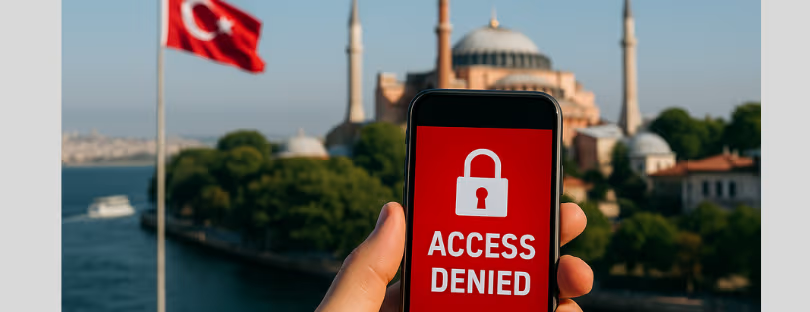
Blocked in Turkey: VPNs Down, eSIM Access Restricted
Whether you’re working remotely, streaming your favorite shows abroad, or just trying to safely use public Wi-Fi at a café in Istanbul, VPNs have become a must-have travel tool. They help you stay private, bypass location-based restrictions, and avoid public network snooping—basically, they let you browse the web like you’re still at home, wherever you are. For travelers, a VPN is often the key to accessing blocked websites, social apps, and even travel services that get restricted based on your IP address.
But in 2025, Turkey has made that a lot more difficult. And it’s not just VPNs—they’ve also started blocking access to websites and apps of popular eSIM platforms like Airalo, Holafly, Nomad, Saily, Instabridge, Mobimatter, Alosim, and BNESIM. While installed eSIMs still work for inbound travelers, managing them while in Turkey—such as installing, topping up, or buying a new plan—has become a challenge. Installed eSIMs still work, but managing them while in Turkey? You’ll likely need—you guessed it—a working VPN. Find out more about the Turkey eSIM ban here.










